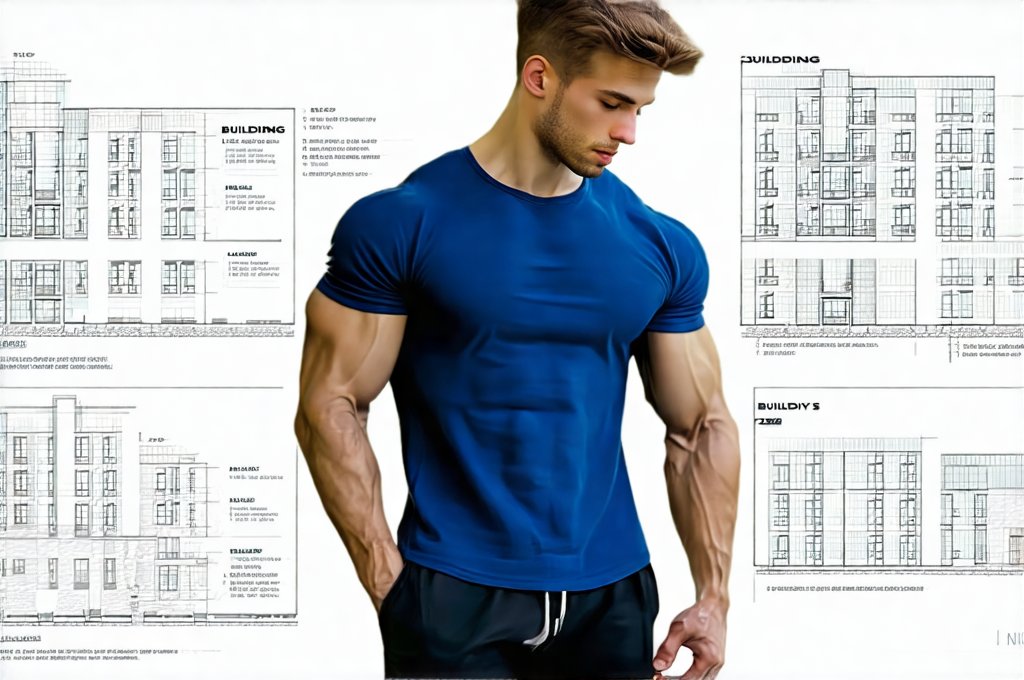Many guys struggle with building muscle, but it’s particularly challenging for those who are naturally skinny – often referred to as “hardgainers.” This isn’t about genetics precluding growth; it’s about understanding how your body processes nutrients and adapting a plan accordingly. Often, these individuals have faster metabolisms, meaning they burn through calories quickly, making it harder to create the necessary caloric surplus for muscle growth. It’s not impossible though! Success hinges on a strategic approach that acknowledges this metabolic reality and focuses on consistent effort across nutrition, training, and recovery.
The biggest misconception is often trying to replicate what works for others. What works for someone with a slower metabolism or different body type won’t necessarily translate well. This means ditching the idea of restrictive diets or overly complex routines. Instead, we’re focusing on building a solid foundation – one that prioritizes consistent caloric intake, progressive overload in training, and sufficient rest to allow your body to rebuild. Building muscle isn’t about overnight transformations; it’s about making sustainable lifestyle changes that yield long-term results. This guide will outline a practical plan specifically tailored for skinny guys with faster metabolisms, offering actionable steps you can implement today.
Nutritional Strategies for the Fast Metabolizer
A fast metabolism is both a blessing and a curse when it comes to muscle building. It’s great for staying lean, but it makes consistently hitting your caloric needs much harder. The key isn’t simply eating more – it’s about strategically increasing calorie intake with nutrient-dense foods and timing them effectively. We need to create a consistent surplus without feeling bloated or sacrificing food quality. This requires diligent tracking, at least initially, to understand exactly how many calories you’re consuming and how your body responds.
The foundation of any muscle-building diet is protein. Aim for 1 gram of protein per pound of body weight (or slightly higher) daily. Good sources include lean meats like chicken and turkey, fish, eggs, dairy products, beans, lentils, and tofu. Don’t underestimate the power of carbohydrates either! Complex carbs like brown rice, sweet potatoes, quinoa, and oats provide sustained energy for your workouts and replenish glycogen stores. Healthy fats are also crucial – avocados, nuts, seeds, olive oil – these support hormone production and overall health.
Finally, consistent snacking is vital. Because of the faster metabolism, spreading calories throughout the day with frequent meals and snacks (every 2-3 hours) prevents your body from being in a caloric deficit for extended periods. Think protein shakes between meals, handfuls of nuts, Greek yogurt with berries, or even a small portion of complex carbs before bed. Don’t be afraid to “force feed” yourself, within reason; it’s often necessary to overcome the metabolic burn.
Optimizing Calorie Intake & Tracking
Understanding your baseline caloric needs is the first step. Use an online TDEE (Total Daily Energy Expenditure) calculator as a starting point, but remember these are just estimates. Track your food intake meticulously for at least a week using a food tracking app like MyFitnessPal or Lose It! This will give you a realistic picture of how many calories you’re currently consuming and where adjustments need to be made.
- Calculate TDEE: Find a reliable online calculator and input your stats (age, weight, height, activity level).
- Track Food for 7 Days: Be honest and track everything, including snacks and drinks.
- Add Surplus Gradually: Once you know your baseline, add 250-500 calories per day. Monitor your weight weekly – if you’re not gaining, increase the surplus incrementally.
The goal isn’t to binge on junk food; it’s about adding healthy caloric density. Liquid calories can be particularly helpful for those struggling to eat enough solid food. Protein shakes blended with fruit, nut butter, and milk are a great option. Don’t shy away from slightly increasing portion sizes of your meals – even small increases add up over time. Remember that patience is key; it takes time to find the sweet spot where you’re consistently in a caloric surplus without excessive fat gain.
The Role of Pre- & Post-Workout Nutrition
Timing your nutrition around workouts can significantly impact muscle recovery and growth. Pre-workout nutrition should focus on providing sustained energy for your training session. A combination of complex carbohydrates and protein is ideal – think oatmeal with a scoop of protein powder, or a banana with peanut butter and a small amount of Greek yogurt. This provides fuel for your muscles and helps prevent fatigue during your workout.
Post-workout nutrition is equally important. Within 30-60 minutes after training, consume a combination of fast-digesting carbohydrates and protein to replenish glycogen stores and initiate muscle repair. A protein shake with some fruit (like berries or a banana) is an excellent choice. This provides the building blocks for muscle recovery and growth. Don’t underestimate the power of timing – it’s not just what you eat, but when you eat it that matters most.
Supplementation: Helpful Additions, Not Magic Pills
Supplements should be viewed as additions to a solid nutritional foundation, not replacements for hard work and consistent eating. While they won’t magically build muscle, certain supplements can provide an edge. Creatine monohydrate is one of the most researched and effective supplements available – it helps increase strength, power, and muscle mass by improving ATP production.
- Creatine Monohydrate: 3-5 grams per day.
- Whey Protein: Convenient for hitting protein goals, especially post-workout.
- Mass Gainer (use cautiously): If struggling to eat enough calories, a high-quality mass gainer can help, but prioritize whole foods first.
Avoid relying heavily on supplements – focus on mastering your diet and training first. Consider vitamins D3 and Zinc if you suspect deficiencies. Remember that individual needs vary, so it’s best to consult with a healthcare professional before starting any new supplement regimen.




